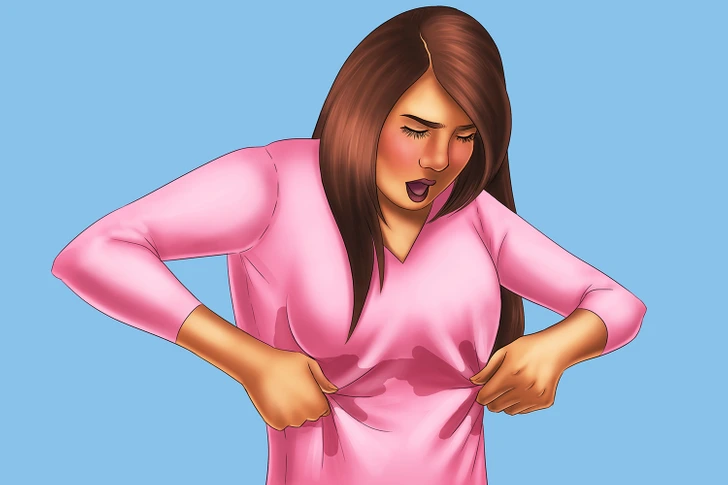My Dad’s Vengeance to Boy Who Kicked My Seat During the 14 Hours Flight Was Awesome


Menopause is a natural phase of aging, typically occurring between the ages of 45 and 55. But for many women, the changes begin earlier—during a stage called perimenopause, when hormone levels start to shift. These early signs can be subtle, confusing, or even mistaken for stress or other conditions.
CONTENT IS PROVIDED FOR INFORMATIONAL PURPOSES ONLY AND IS NOT INTENDED AS A SUBSTITUTE OF MEDICAL ADVICE.
SEEK GUIDANCE OF YOUR DOCTOR REGARDING YOUR HEALTH AND MEDICAL CONDITIONS.
During the menopausal transition, your body can experience both subtle and more noticeable changes. One of the most common is irregular periods. As ovulation becomes less predictable, the timing between cycles may fluctuate, sometimes shorter, sometimes longer. Your menstrual flow may also vary, from lighter to heavier, and it's not uncommon to skip periods altogether.
Menopause typically occurs between the ages of 42 and 58. For some women, around age 35 marks the middle of their reproductive years, while for others, it may be closer to the end. For example, Naomi Watts opened up about entering menopause at 36, which was considered early due to her medical circumstances, while actress Halle Berry went through menopause at 54.
Hormonal changes during menopause can weaken the pelvic floor muscles and thin the lining of the urethra and bladder. This may lead to symptoms like frequent urination, urgency, or even mild urinary incontinence. Many women also report increased sensitivity or discomfort during urination, even without infection.

Like many other menopause symptoms, burning mouth can be linked to a drop in estrogen levels. This hormonal change can also cause other oral changes, such as dryness or shifts in your sense of taste and smell. However, burning mouth isn’t always hormone-related — it can also stem from other health conditions or lifestyle factors that impact oral health, such as mouth infections.

Sudden waves of heat, especially in the face or chest, often followed by sweating or chills.
As estrogen levels drop during menopause, many women experience mood-related changes such as irritability, fatigue, anxiety, and sleep disturbances — all of which can influence overall emotional well-being. Hormonal shifts can also impact brain chemicals like serotonin and norepinephrine, which play key roles in regulating mood and are linked to depression.
You might have difficulty falling asleep, wake up often, or feel tired even after sleeping. Hormonal fluctuations and night sweats are often the cause.

The type of memory loss associated with menopause is often referred to as brain fog. You might find it harder to focus at work, follow the plot of a movie, or recall people’s names. Even everyday tasks — like remembering where you left your keys — can become more frustrating than usual.

During perimenopause and menopause, hormonal changes can affect the way your nerves function, leading to unusual skin sensations. Some women experience numbness, tingling, prickling, itching, or even a crawling feeling on the skin — a sensation known as formication. These symptoms are often linked to the drop in estrogen levels that occurs during this time.
During menopause, levels of the androgen hormone decline, which can impact the meibomian and lacrimal glands in the eyelids. These glands are responsible for producing the oils and fluids that keep your eyes lubricated. When their function is disrupted, the eyelids may become inflamed, leading to reduced tear production and poorer tear quality — ultimately resulting in dry eyes.

Menopause triggers hormonal changes—especially a drop in estrogen—that can alter body odor. This is often due to increased perspiration and changes in sweat composition, which can attract odor-producing bacteria more readily.
Menopause officially begins one year after your last period and often brings noticeable changes to your skin and hair. As hormone levels decline, skin may become drier, thinner, and less firm.
You might also see an increase in facial hair and a decrease in hair on your scalp. The good news? With the right care and attention, many of these changes can be managed and minimized.

Hormonal fluctuations during perimenopause and menopause can affect the digestive system. Many women experience bloating, constipation, increased gas, or changes in appetite due to slower metabolism and decreased estrogen levels. These symptoms are often overlooked, but they can significantly impact daily comfort and confidence.
Early signs can also help identify many health conditions. For example, diabetes can often be detected at an early stage through these symptoms.











